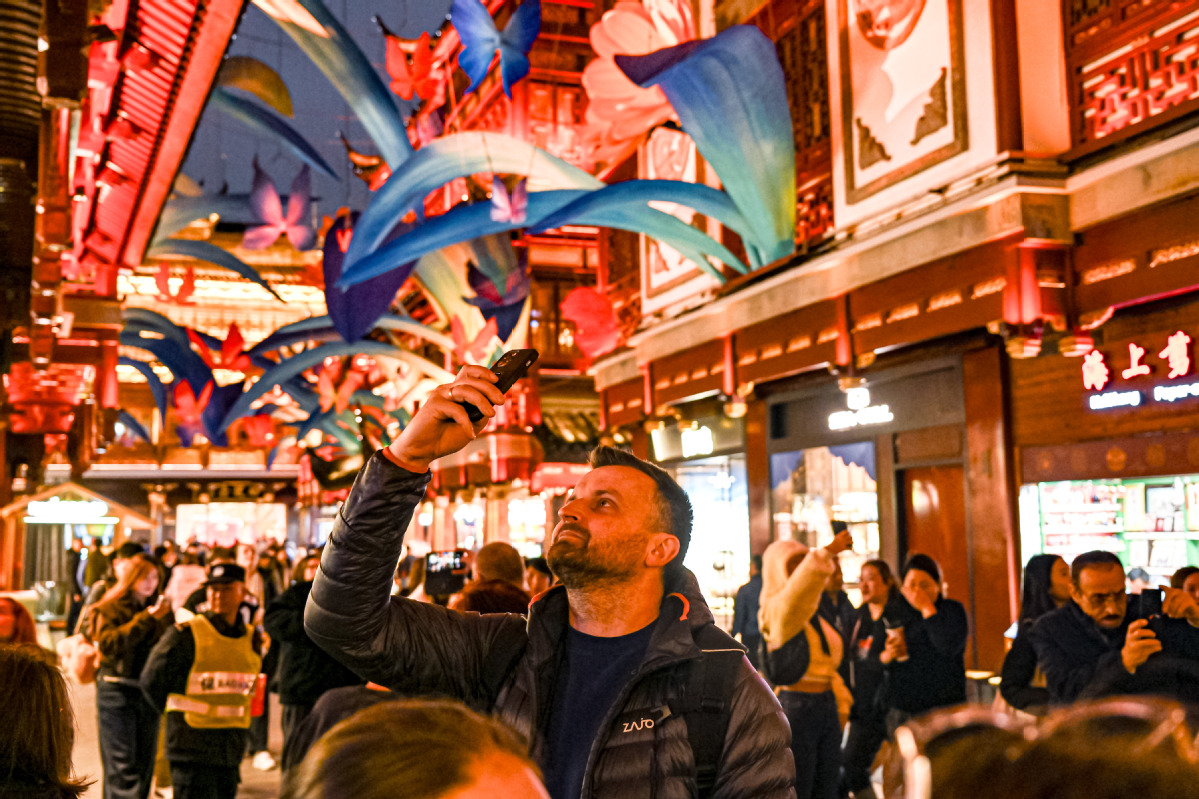Foreign visitors need home-like convenience

The National Immigration Administration's new immigration-friendly policies for foreign visitors announced in December are set to prompt more foreigners to visit China. The policies show China's determination to advance high-quality opening-up at a time when some countries are resorting to protectionism and isolationism.
The new policies extend the duration of visa-free visits by foreigners to 10 days, and add 21 new ports of entry to the existing list. Since the NIA's announcement has added a new set of countries whose nationals can enjoy visa-free entry, China now has visa-free entry arrangement with 25 countries, offers unilateral visa exemption to the nationals of 38 countries and provides visa-free visits for visitors from 54 countries.
The visa-free entry policies are yielding the desired results, as data show that in the first 11 months of last year more than 29 million foreigners visited the country — an increase of 86.2 percent year-on-year. In fact, foreign visitors taking advantage of the visa-free policies have increased by more than 132 percent. And with the latest announcement extending the duration of visa-free visit, a lot more foreigners are expected to visit China for business or for sightseeing this year.
But the authorities have to improve many things to better serve the increasing number of foreign visitors.
China is now largely a cashless society with people paying for their purchases by scanning QR codes with their mobile phones. But digital payments are not yet popular even in many developed countries, making it difficult for visiting foreigners to pay their bills. And although the authorities have taken measures to enable foreigners to swipe their credit cards and/or connect their mobile phones with their home bank accounts to make payments in many hotels, restaurants and shops, the arrangement is far from smooth.
In different cities and on different occasions, I have seen foreigners getting frustrated after being unable to pay their bus or metro fares, settle their restaurant or hotel bills, or book their tickets to enter tourist sites. Therefore, measures should be taken to make foreigners' stay in China more convenient.
Homestays are now popular across the world. I too have opted for homestays in many countries not only because it is cheaper but also because it allows you to cook your own food and communicate with the hosts. Unfortunately, homestays are few and far between in China for foreign visitors. Hence, the authorities should consider encouraging more Chinese people to open their doors to foreign visitors.
True, about 200 million people in China can speak some English or other foreign languages, but communication remains a problem for foreigners visiting the country. Many cities now provide instructions and information on buses, subways and high-speed trains, and have put up road signs in English, but they are hardly of any help because they are translated from Chinese into English or other foreign languages using translation software or are printed without being professionally edited.
While strolling in and around an annual international forum venue in Hainan province a few years ago, I found at least 20 signs in English that were either inaccurate, erroneous or simply ridiculous. So I suggest that the authorities start a national campaign to correct the inaccurate and erroneous signs in public places to ensure they serve their intended purpose. Also, policemen, taxi and bus drivers, shop assistants and restaurant employees should get foreign language training so they can be more helpful to foreign visitors.
China has more than 500,000 public toilets. They are free, clean and mostly well-maintained. But, unfortunately, few of them provide free toilet paper, which is frustrating for many foreign visitors who are not used to carrying toilet paper and soap as they are mostly available in public toilets in the West.
Perhaps installing vending machines dispensing toilet paper and soap in front of public toilets is a better way of addressing this problem.
To make China a foreign visitor-friendly country, we still need to do more.
